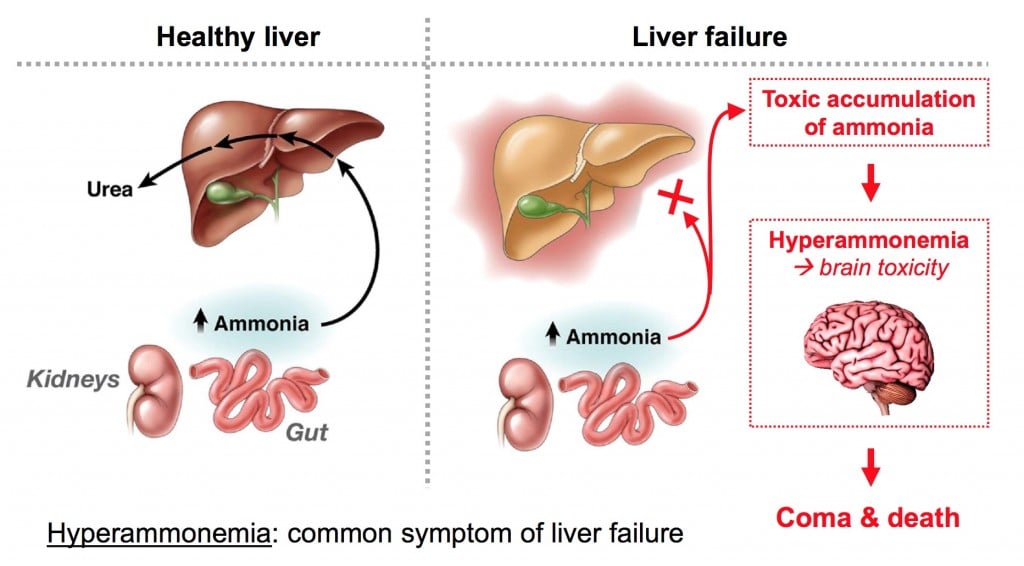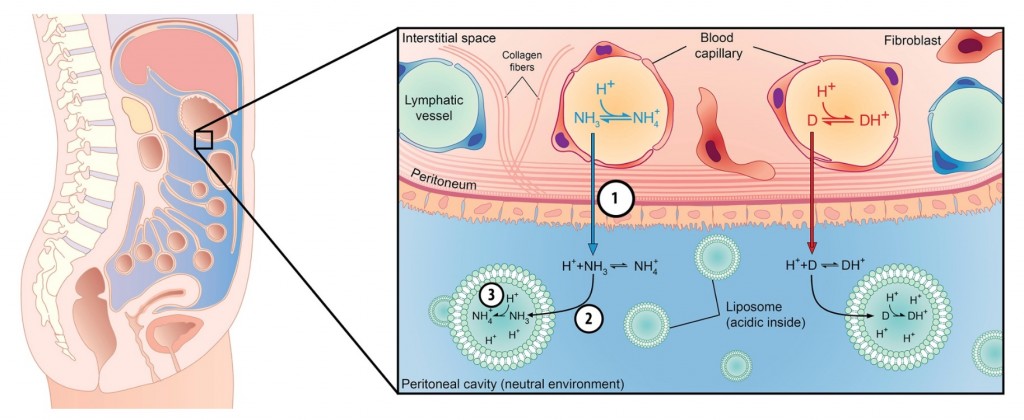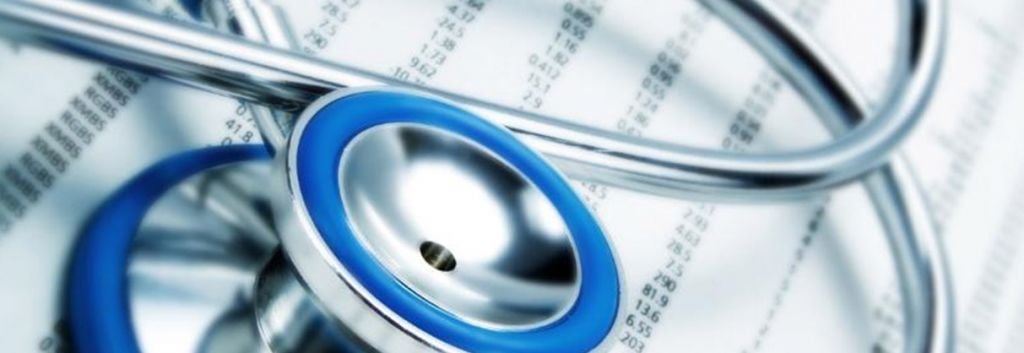What happens when your liver stops working? The toxins your body continuously produces will no longer be eliminated, transforming your own body in a remarkable poison factory. This problem, in reality, is quite common. Liver diseases affect more than 30 million Europeans, and kill more people than both diabetes and road accidents combined! Versantis, a Swiss based biotech startup, is developing an innovative way of treating this global issue with liposomes.
Our body continuously produces large amounts of toxins, resulting from the digestion of proteins coming from our alimentation. The most common of these toxins is ammonia, which can be extremely neurotoxic. In patients with liver failure, the natural elimination of ammonia is defective and it therefore, accumulates in the body. This is what we call a hyperammonemia, which can lead to brain damage, comas, and ultimately, death (the figure bellow explains it).

The cornerstone of a successful therapy to avoid a dramatic outcome is the emergency reduction of the serum ammonia level. Along with a strict dietary control and few supportive measures, the current standard of care relies on hemodialysis-based machines to fight hyperammonemia. Hemodialysis is a machine that filters wastes, salts and fluids from your blood circulation (blood is pumped out of your body, get filtered through the machine, and flows back into your veins). These machines are mostly used to support kidney insufficiencies but can also be used to help patients with liver failutes. However, they are invasive (blood is cleaned outside the body), risky (e.g., hypotension, hemolysis), expensive, and not always efficient, clearly, there is still room for improvement. According to a study from The Lancet, mortality rates related to liver diseases have increased by 400% since 1970… we obviously need to do something about it!
An alternative to hemodialysis is the technique of peritoneal dialysis. The process uses the patient’s peritoneum (the membrane bag that contains your guts) in the abdomen as a membrane from which fluids and dissolved substances are exchanged from the blood. The dialysis fluid is introduced through a permanent tube in the abdomen and flushed out with the toxins coming from the blood. This technique is less efficient at removing wastes from the body than hemodialysis, and let’s not forget that the presence of the tube in the body entails a real risk of infection. But should this technique improve, the benefits may get the better of the risks. At least, that’s what Versantis is betting on. The startup wants to introduce liposomes in the fluid used during the peritoneal dialysis. A liposome is an artificially-prepared spherical vesicle composed of a lipid bilayer (like your cells, but empty). It’s already a well-known technology used to deliver drugs or nutrients in your body. The safety of liposomes is already shown and they’re biocompatible and biodegradable.

So how does Versantis intend to do so? What’s funny with their idea is that the company went against the tide. Instead of using liposomes to deliver something into your body, they use them to capture toxins from your body and throw them out of it. Once injected in the peritoneum, the liquid developed by Versantis will attract the ammonium and other toxins into the liposomes. Then, they extract the liquid from the body and voila! Animal tests show that this solution is 20 times more efficient than commercial solutions after 3 hours (Forster et al., Sci Trans Med 2014;6(258):258ra141).
Ok, now let’s get back to reality. Versantis is a startup created on March 18th 2015, so it’s a still early days for the firm and to say that the fight is already won. But by looking at the company’s strategy it seems to be on the right track to success. Versantis has patented this innovation to put barriers to intruding competitors. They now prepare their clinical strategy. Versantis chose to first develop its activity in a rare disease indication, a metabolic disorder causing serious liver failure in neonates and children (around 2500 cases worldwide). Hemodialysis can’t be applied to children because of their small amount of blood in their body. However, Versantis’ technology could answer this medical need! The rare disease status also means an acceleration of clinical trials for the company. The market of 350 000 patients per year with severe liver failure could then be open to Versantis with huge incomes to be expected.
Yet, the ambitious startup wants to go even further. They discovered that the liposomes can also capture drugs in the body. The innovative team put their idea into practice. They intoxicated rats and save them! This means that this technology could not only become a rapid drug, but also a narcotic detoxification system for humans. That’s a huge market explaining the attraction around Versantis in a lot of startup competitions. To fulfill this mission, Versantis is currently raising its first €1.35M (1.4 million Swiss francs) round of financing and is already planning the next step to continue clinical developments.





